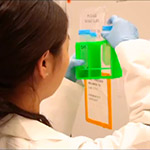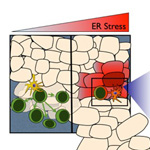Genomic “Hotspots” Offer Clues to Causes of Autism, Other Disorders
An international team, led by researchers from the University of California, San Diego School of Medicine, has discovered that “random” mutations in the genome are not quite so random after all. Their study, to be published in the journal Cell on December 21, shows that the DNA sequence in some regions of the human genome is quite volatile and can mutate ten times more frequently than the rest of the genome. Genes that are linked to autism and a variety of other disorders have a particularly strong tendency to mutate.















